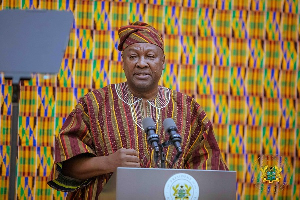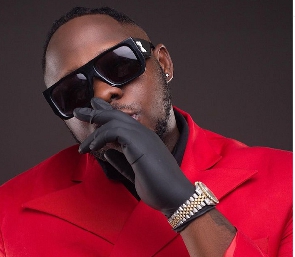TITLE: A Case of Social Reengineering for the Muslim Youth
Author: Sheikh Zagoon Sayeed Haruna
Chapters: 10
Pages: 167
ISBN No: 978-9988-1-5080-8
That if you want to destroy a nation and to destroy a people, then corrupt their youth and likewise the opposite serves true as well. That if you want to create a nation and if you want to conquer a people and you want to progress; then work on the youth; develop the youth – Abu Husnayn Murtaza Khan (UK based Islamic Preacher)
INTRODUCTION
Ghanaian Muslim authors are a very scarce commodity, despite priding ourselves as Muslims with a 1001 intellectuals littered all over the different fields of the social strata; be it in politics, business, sports, academia, media etc.
The book under the review lenses assesses the past, put the present into proper perspective and takes a peek into the future of a very delicate and crucial section of the population – the youth, more specifically the Muslim Youth.
It happens to be a fitting first novel from the author, Sheikh Zagoon-Sayeed Haruna. It is without doubt a valuable contribution to Islamic academia, focusing on the future of the religion in Ghana.
The book touches for the better part, the Muslim youth at different levels of the social echelon be it politically, academically, socially, economically, familial relations and a peek into youth development, religious tolerance amongst a host of other issues.”
THE TIMELINESS OF THE BOOK
Without doubt, the Quran stands as the one true literature that has stood the test of time. It has aptly been described thus as rightly predicting the past, true to the future and with the best forecast of the future.
The book under review comes at a very opportune time, when most of the talk about how the Muslim youth needs a complete overhaul at various sections of the social plane. The book steps beyond mere talk into concrete issues and proffer solutions.
The book in very large portions quote the Quran and the Sunnah (traditions of the Prophet Mohammed – May Allah exalt his mention), the author opens up to other relevant literature locally and internationally.
It captures the need for youth in at all points of history and more so in contemporary times. Youth for instance were an important part of the Prophet Mohammed mission – the spread of truth and battle against falsehood some 1433 years ago.
Today, youth have become so important that governments across the world have undertaken a conscientious effort to bring the youth on board the development train and by that moulding them for the future leadership responsibilities.
So important have youth become that there is the national position of youth organizer in almost all political parties; a tacit recognition of the importance of the youth in political organization and activism.
CHAPTERS 1, 2, 3 & 4
In the first four chapters, the author effectively and extensively treats Islam and Youth, before discussing youth and the role they play in nation building; he zeros in on the contemporary Muslim youth, and puts forth the gargantuan challenges that confront them.
He further goes on to make a strong case for social change using the word; social reengineering as used by the late Dr. Ahmed Issaka of the University of Ghana, School of Business, a Muslim luminary of our time (may Allah have mercy on his soul).
He tasks the youth to challenge the status quo relative to taking leadership positions, whilst cautioning them not to forget to accord people already in leadership their due; underlining the need for a peaceful co-existence between leadership structures of all ages.
Chapter three puts in focus what the author calls ‘the Multiple Tragedy’ typical of the Muslim youth: the causative factors of this tragedy he identified amongst others were; lack of Muslim Role Models, parental neglect, lack of guidance and counseling, leadership training deficiency and the conspicuous absence of a youth policy strategy.
He transits into chapter four with ‘The Need For Social Change’ where he outlines steps to curb the multiple tragedy in generations to come and further lessen the burden of that tragedy on the current crop of young Muslims.
His solutions are simple and straight to the point. Parental Responsibility, Unity of the Ummah plus a Proactive and Cohesive Leadership should be able to shoulder the giant efforts at social reengineering for the future of the religion in Ghana.
In the fifth chapter, he proffers a solution that would ordinarily have been overlooked and least expected in the male dominant Muslim society that is today; he identifies the Muslim mother as pivotal to a stronger Muslim youth in all respects.
He also takes the next two chapters to put under the spotlight issues to do with Muslim youth and gender based violence and relate immediately the urgent need for inter and intra religious tolerance to be a core value of the Muslim youth.
In the eighth chapter, he zooms in on the youth and their role in Islamic outreach (Dawah), here he tasks the young Muslims to as much as possible ‘brighten the corner’ where they are, and by so doing send a positive message to non-Muslims.
The last-but-one and the final chapters of the book are somewhat tied, whilst the ninth dilated on education (secular and Islamic) and personality development of the youth, the first part of the last chapter captures the role of Muslim leaders in the youth development drive.
The last chapter also is on a touchy subject of sexual reproductive health, considering the magnitude of the scourge of Human Immuned Deficiency Virus and its attendant Acquired Immuned Deficiency Syndrome HIV/AIDS, he reserved space to deal with the subject relative to the Muslim youth and through Islamic lenses.
THE AUTHOR
The author is by far one of the most vibrant Muslim Youth leaders who is an assistant registrar with the West Africa Examination Council (WAEC) and host of Islamic talk program, Islam and Life on GTV.
He is a product of the University of Ghana, where he served as host of a Friday Islamic program on the campus radio station, Radio Univers. He also studied at Al Azhar University in Egypt.
He is also a member of the governing council of the Ghana Muslim Academy (GMA) and a former leader of the GMA. He is back to his post as an assistant registrar with the West Africa Exams Council (WAEC) after taking yet another academic role in the United Kingdom.
CONCLUSION
Sheikh Zagoon proposes the need for quality education for the Muslim youth coupled with Personality development over the period of their youth. He finishes off calling for positive action from Muslim leaders at all levels of the social plane.
I am of the view that every young Muslim should get a copy of the book and read it, beyond reading it, digest its contents and strategically position themselves in proper stead to implement the solutions proffered by Hajj Zagoon.
Sheikh Ishak Ibrahim Nuama, Dr. Abudu amongst a few other Muslim authors have taken the lead by authoring several Islamically relevant literature and I thank Allah for the addition of one to that league.
I look forward to other publications by the author and many more from other up and coming Muslim authors, whilst lauding those who have taken the lead, I hope and pray that several others fill what clearly is a gap in the advancement of the Ummah – Muslim community.”
I wish the author the very best and feel obliged to encourage other experienced Muslims in medicine, media, academia, religion and business to as much as possible document their experiences over the years for future generations to benefit from.
I unreservedly congratulate him on this piece, and hope to see revised editions when necessary and also to have more publications from this widely read and academic walking box (Zagoon). May the knowledge therein serve as continuous charity for him.
© Abdur Rahman Shaban Alfa
alfarsenal@yahoo.com/newcguide@gmail.com
Facebook: Alfa Allahguide Shaban
General News of Wednesday, 30 May 2012
Source: --












